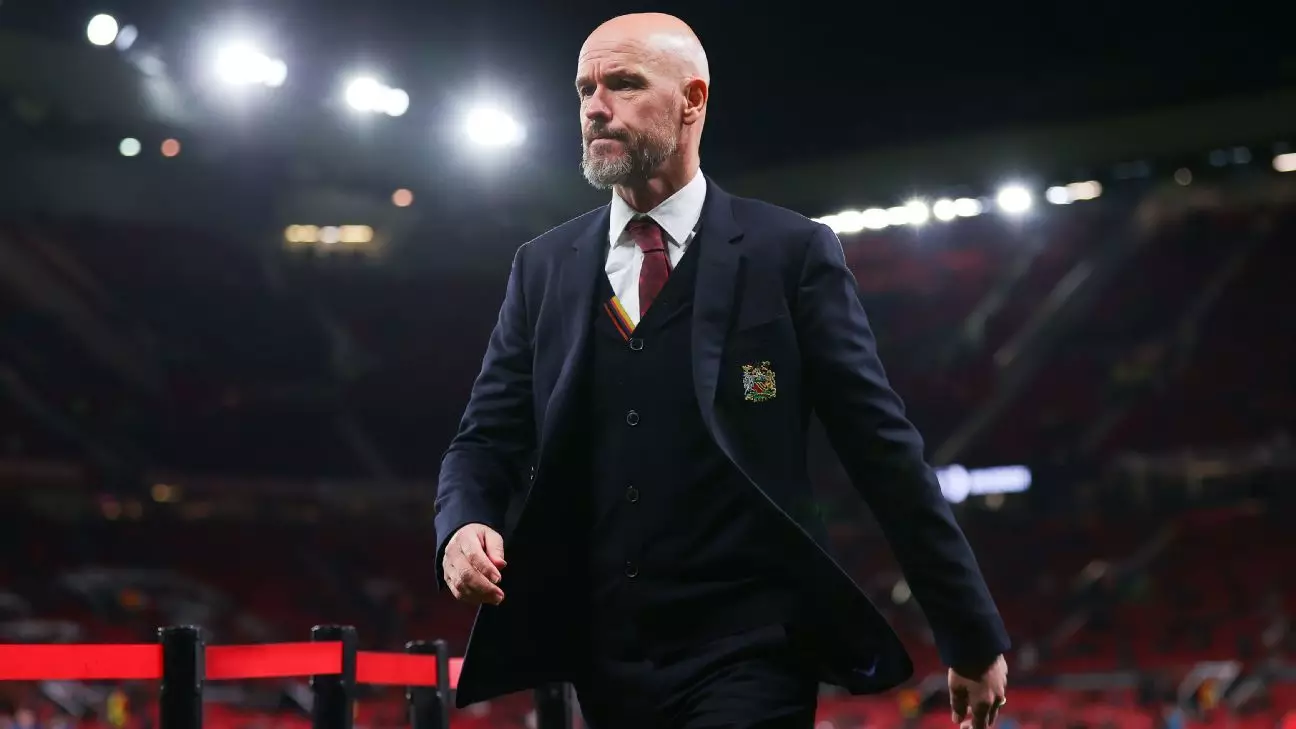Manchester United has always prided itself on its status as one of Europe’s footballing titans. The club’s historical achievements foster expectations of competing at the highest levels, particularly in prestigious tournaments like the UEFA Champions League. However, recent seasons have painted a stark contrast between ambition and reality. With the team currently entrenched in the UEFA Europa League, the question arises: can United re-establish itself among Europe’s elite, or is this the new norm for the storied club?
The recent 1-1 draw against FC Twente highlighted many of the club’s ongoing troubles. At first glance, this might seem like a mere slip-up in a tournament where progression is viable. Yet, upon closer examination, the match revealed a deeper malaise. FC Twente, a team that is relatively modest in European terms and sitting fourth in the Eredivisie, played with a fervor that has seemingly eluded United. The Dutch side’s supporters celebrated the draw as if it were a victory, which speaks volumes about the current state of both clubs.
The visitors capitalized on their chances and showcased their potential with dangerous counter-attacks, particularly after equalizing mid-second half. Coach Joseph Oosting described the draw as “an important result” for Dutch football—the kind of sentiment that should concern United fans. This was not a case of a heavily favored team underperforming; it was a testament to a club with grit and determination, contrasting sharply with United’s fragile confidence on the night.
With three high-stakes matches on the horizon against Tottenham Hotspur, FC Porto, and Aston Villa, Erik ten Hag finds himself in an increasingly precarious position. Just two seasons removed from a manager’s expectations to deliver top-notch performances and results, Ten Hag’s survival may rest on his ability to rally his players. The shadow of uncertainty looms over his future, and following the disappointing draw at Old Trafford, speculation surrounding his position is bound to intensify.
Moreover, Ten Hag’s reluctance to face off against his former club FC Twente reveals the emotional weight he carries into these matches. His admission that “it’s not nice to have to hurt something you love” inadvertently reflects the deeper psychological issues within the club. The inability to dominate in matches they should win raises questions about their mentality and preparedness.
Despite dominating possession and accumulating 19 shots, United’s inability to convert those opportunities into goals underscores a crucial deficiency in their attacking strategy. The current statistic of five goals in five Premier League matches is alarming. Ten Hag acknowledged the pressing need for improvement, stating, “We have to be more clinical in such situations.” However, this opens a wider conversation about the team’s structure and the mentality behind their play.
To turn things around, adjusting their tactical approach might be necessary. This involves not only fostering a killer instinct to close out games but also instilling a mentality that accentuates consistency. The reality of the club’s artistic failings translates into tangible losses, particularly in pressure-laden moments.
As the Europa League presents a different kind of challenge, it offers United a potential platform to reassess and recuperate. Unlike the Champions League, where elite teams compete fiercely, the Europa League landscape allows for opportunities that could rejuvenate a team in need of confidence. With no teams dropping down from the Champions League in the new format, the pathway to success may appear feasible in comparison to the Premier League’s grueling top-four race.
But if progress is to be made in this secondary competition, Ten Hag will need to leverage the Europa League strategically. While it may not have been part of his original vision after joining Manchester United, embracing this reality could lead to essential building blocks for the club’s rejuvenation. Each match must be approached with the understanding that failure isn’t an option, particularly with the specter of Champions League qualification looming large.
As the specter of Europa League football looms over Manchester United, the road ahead appears daunting yet filled with potential. Ten Hag must galvanize his squad and instill a resolute spirit as they navigate upcoming challenges. While the current reality may not align with the lofty expectations of fans and club officials alike, embracing the Europa League might pave the way for essential growth and eventual return to Europe’s upper echelons. Ultimately, United’s ability to embrace this journey, coupled with tangible results and a renewed sense of purpose, will dictate the narrative for the remainder of the season.


Leave a Reply